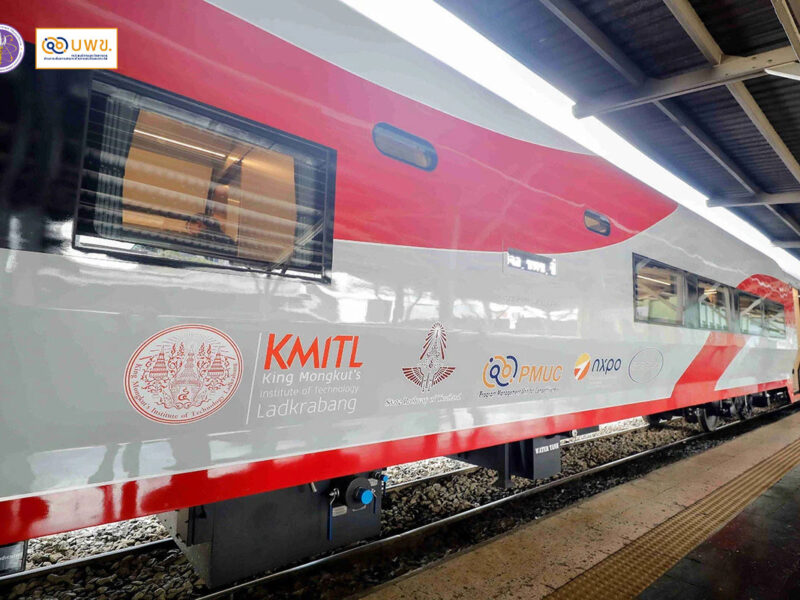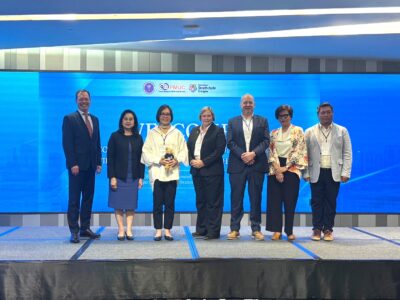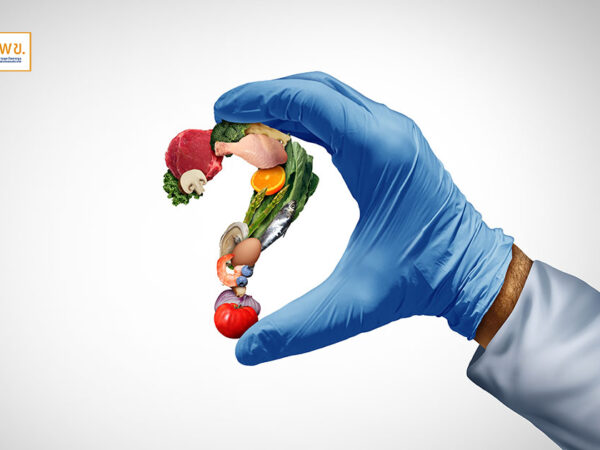Assoc. Prof. Siree Chaiseri, Ph.D., director of the Program Management Unit for Competitiveness (PMUC), reveals the success of the research project: “Algorithm development to increase the efficiency of dairy cow management” funded by Thailand Science, Research and Innovation to enhance the Thai dairy industry with technology and innovation developed by SENOVATE AI, a Thai startup, in hope that Thailand can become the leader in exporting dairy products in Southea
This project has achieved the objective of developing a process for managing and analyzing data or algorithms from activity meters to help in accurately monitoring and classifying estruses and other behaviors of dairy cows. The aim is to replace human labor in performing the functions while increasing the efficiency of dairy cow production for farmers. The research team for this project included Assoc. Prof. Chaidet Inchaisri, Ph.D., DVM., Department of Internal Medicine Faculty of Veterinary Medicine, Chulalongkorn University in collaboration with Mr.Pongsanun Khamta, DVM., and Mr. David Makarapong, Ph.D., Senovate AI Co., Ltd., a Thai startup supported by Chulalongkorn
University.

Assoc. Prof. Chaidet Inchaisri, Ph.D., said by 2025, Thailand has set a goal for free trade in dairy and cream products, skimmed milk powder and dairy beverages under the Thailand-Australia-New Zealand Free Trade Agreement (TAFTA-TNZFTA), giving rise to a new challenge for Thai dairy industry due to import of large amounts of dairy products from both countries. Moreover, most entrepreneurs in Thai dairy industry, more than 70-80%, are small farmers with low production efficiency and higher costs than larger competitors. But there are also opportunities to export various dairy products, whether it be yogurt, drinking yogurt, or UHT milk to neighboring countries with 0% import tariffs in ASEAN countries and other Asian countries, representing an industry worth more than 10 billion baht per year. Thailand is the world’s second largest exporting center after Switzerland. Dairy products are exported to Myanmar, Laos, Cambodia, Vietnam, Singapore and Hong Kong, as well as to China, a
large market with high demand. If Thai dairy industry is to grow strongly and sustainably in the future efforts must be made to increase the efficiency of raw milk production to be competitive in the market.

Mr. Pongsanun Khamta, DVM, a researcher with experience in managing dairy farms and utilizing digital technology to manage the health and reproductive system of dairy cows, said that problems with breeding and farrowing for dairy cows are challenges that have contributed largely to losses for both dairy farmers and the dairy industry in all types of farm settings for a long time, mainly due to the fact that most cattle health assessment has been done mostly with manual labor, resulting in poor accuracy and more frequent errors. If dairy cows are fertilized late, it will affect milk production from mother cows. Therefore, timely successful insemination is essential to operational success. But the problem is detecting estrus in cows with manual labor is quite difficult, because most of the time cows will show symptoms only at night. If the farm owner does not have an accurate an efficient detection system in place, opportunities to breed cows are often wasted. In addition, the tropical climate in Thailand causes cows to show almost no apparent estrous symptoms, making it even more difficult to detect breeding opportunities. By using sensor technology to detect estrous, dairy farmers can increase more accuracy in the breeding process. At present, in Thailand, there are some companies that use this sensor in more than 100 medium-sized dairy farms with a high cost burden. But it has not been as successful as it should have been because foreign developed algorithms were designed based on weather conditions abroad. They were developed to be used behaviors with behaviors of dairy cows raised in cold climates. Moreover, stall management and food management in Thailand is completely different from other countries. Before the algorithms can be applied in Thailand, major adjustments need to be made to the algorithms and software. At the same time, while these types of sensors are expensive, they are difficult to maintain and require trained technicians to perform maintenance functions, which may be beyond the technical ability of the end users. In addition, the foreign systems often have only English as the main interface language and are very complex. On some farms, the accuracy of these systems is quite low, at only 50-60%. Therefore, Senovate AI has developed a comprehensive set of technologies, including hardware and software, on a digital platform for Thai farmers to use, while developing an algorithm suitable for cattle management in Thailand by adding information such as artificial insemination, treatment of sick cows, etc., which is suitable for 70-80% of small-scale dairy farm operators in Thailand. This Thai-invented cow behavior sensor helps to decrease costs for Thai farmers compared to other sensors. By attaching a sensor to the neck of each cow and reporting the tracking results through applications and online platforms the need to invest in other infrastructure has been virtually eliminated.







Dr. David Makarapong, CEO of Senovate AI, said the platform will give farmers access to livestock management technology within a single platform. It was developed from an understanding of farmers’ behavior and the local context in Thailand. This platform is a business model to help farmers in their everyday operation while, instead of focusing on outright selling of equipment, it offers monthly-billed services according to usage patterns with free installation. The service fee with the use of this algorithm may start from 30 baht per animal per month. But if anyone prefers more insights, such as weather information, disease outbreaks, or if some farmers need veterinarians or animal husbandry to help monitor and support their dairy farms then additional service fees are optional. This is a “sharing economy” business model that maximizes the use of local resources, which includes connecting farmers groups and procurement of equipment, tools, and various medical supplies. This is, in effect, similar to the dairy e-commerce platform used in trading various products within a group, resulting in the development of local economy. In the future, e-learning will be built within the platform for farmers, veterinarians and animal husbandry to learn new skills along with establishing service standards to meet the needs of Thai dairy farmers sustainably.



Dr. David provided some details about setting the profit target for using the digital dairy farm management platform. From data provided by the Department of Livestock Development, the Ministry of Agriculture and Cooperatives, in 2022, the total number of dairy cows is expected to be 765,887. Senovate AI aims to use their sensors to track at least 10,000 cows, with an estimated income of at least 80 million baht per year by the beginning of 2025, starting with reconditioning of farmers behavior towards using technology in detecting estrus symptoms, or other symptoms, in place of human labor. As the number of users increases, the algorithms can be improved to be increasingly more accurate, while including other functions such as detecting sick cows, detecting cows coming out of the stall, alerting when cows are about to give birth etc. effectively enhancing the technology to be more comprehensive and complete. In the future the technology can be extended to be used in managing other types of livestock such as beef cattle, etc., as well as expanding the market to foreign countries, arming the Thai dairy industry to be effective competitors both in Thailand and in Southeast Asia. The hope is to enable Thailand to become a leader in the world dairy industry by And, in the future, if such dairy farm management system is used with 100,000 cows or about 20% of the number of dairy cows in Thailand, it can result in 10 billion baht in overall value for the country by 2032. And if the technology base can be expanded into Southeast Asian markets, Senovate AI will be the first Unicorn in AI technology for the agricultural industry to come out of Thailand.







